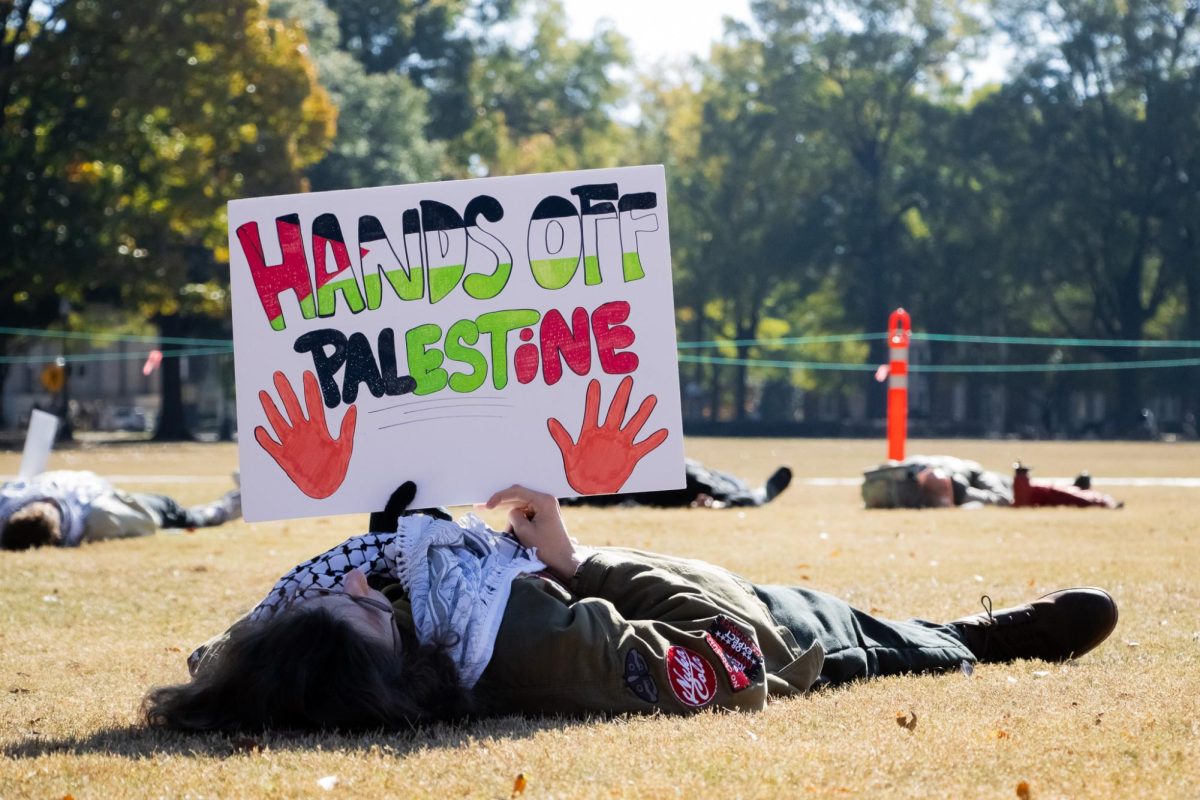A UA professor is about to embark on a journey, and she said she has a 50 percent chance of returning alive.
From Oct. 26 till Nov. 11, Nehad Shawky, an Arabic professor, will complete the Hajj, a command of the five pillars of Islam, which means, “to go visiting a place.” In Islam, this means going to Mecca.
Shawky spoke about her upcoming expedition to a group of audience members in Gorgas Library on Oct. 20.
“I want to go there to control myself, to manage anger,” she said. “This trip is how to really accept God’s will without protesting.”
Shawky said she’s already begun her lessons.
Two weeks before taking off, everything was stolen from her house. She said the value of the goods was two million pounds – about $3.1 million USD.
Over the past years, Shawky’s prepared for this trip, saving up and getting her house in order.
“You cannot borrow the money,” she said. “You are not to have any debts. If anything in the house needs the money, you are not to go to the Hajj.”
Before making the trip, she must get in a state of Ihram. This means a specific cleansing as well as donning the pilgrim’s veil and white dress.
Afterwards, she will verbally declare her intention to perform Hajj, reciting the Talbiyah.
She has covered the small bases, like buying a backpack, slippers and other necessities.
Waving a decorated hand, she stopped to explain the henna her friend drew as another means of preparation. Shawky said this mark of happiness and joy also combats diabetes, blood pressure, bacteria and arthritis.
Once she’s declared her intention, there are certain prohibitions. She must not clip her nails, cover her head, wear perfume, or have sex.
“You have to leave it for a while,” she said. “Even if you have the drive, well, forget it.”
Shawky said the Hajj is a form of Jihaad, which means fighting the bad things within you, something many have come to misunderstand.
“Who said fight in God had to be in the war?” she said. “Fight the wrongs within yourself. Like, you lie, you forget your prayers, whatever.”
She said the media has misrepresented Islam. It forbids disrespect of other religions, leading many to consider it the religion of tolerance.
“Unless you really admit them, you are not a Muslim,” she said.
Pilgrims enter Mecca from one of five entry points, depending on the location they come from. They must also offer an animal sacrifice, which Shawky plans to purchase.
Completing the pillar is a dangerous expedition, claiming between 300 and 3,000 martyrs each year, she said.
Her own sister almost joined the statistics years ago after being trampled during the ritual. She stayed in intensive care for three years, Shawky said.
Normally a 21-day excursion, Shawky is taking the 16 day express Hajj to avoid putting pressure on her substitute at UA.
One of her students, Stephanie Himmond, a sophomore majoring in economics, said she learned a lot by attending.
“I didn’t know that many people were there,” she said.
Awareness was part of Fran O’neal’s, the director of the International Honors Program, goals. O’neal said UA is trying to offer students intercultural experiences without having to leave campus.
“I try to act as a contact person or ‘First Friend’ to many of our international faculty,” she said.
One of the attendees was one of Shawky’s first friends. Shawky was introduced to Karen McGlothin as a houseguest.
“When she first came, she had no place to stay,” McGlothin said.
Shawky stayed with McGlothin and her husband for a few days, and they’ve since remained good friends. McGlothin said the presentation has her interested in learning more.
Confident that future generations won’t ever miss out on learning more about the Hajj, Shawky said she never fears Mecca’s destruction.
“Not a chance,” she said. “The pigeons that fly over don’t even spoil it.”








